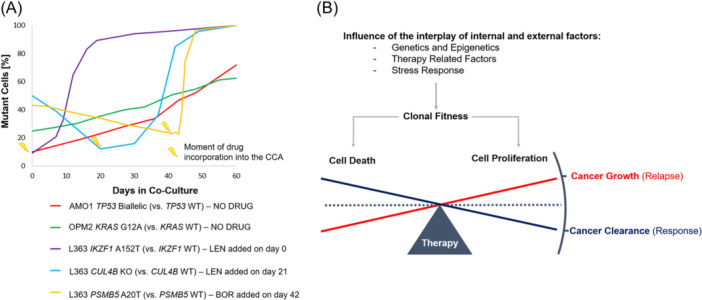Figure 5.

Clonal competition assays (CCA) examples of different genetic alterations and models of the cell death/cell growth equilibrium with regard to clonal fitness and therapy. (A) Alterations in drug resistance‐associated genes (CUL4B and PSMB5) only confer a proliferative fitness in the presence of the respective drug (Lenalidomide or Bortezomib). In the absence of selection pressure, the WT cells outcompete the mutant‐bearing sublines in the CCAs. On the contrary, KRAS and TP53 alterations intrinsically confer a growth advantage to the affected cells. Shown here is a meta‐analysis of CCAs made for previously published studies 2 , 13 and the OPM2 KRAS WT vs KRAS G12A comparison. (B) The complex interplay between clonal fitness and antitumor therapy determines if the cancer gets cleared as a response to the treatment or if it grows, provoking a relapse. The CCA is a suitable tool to study the interaction and outcome by modulating internal and external factors of the system.
